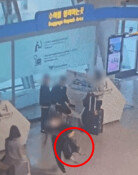‘Independence movement encompasses provisional government, industrialization and democratization,’ Yoon says
‘Independence movement encompasses provisional government, industrialization and democratization,’ Yoon says
Posted August. 16, 2022 07:59,
Updated August. 16, 2022 07:59
President Yoon Suk-yeol said that the independence movement during the Japanese colonial past yearned for “a democratic republic where the people are the rightful owners of their nation and where freedom, human rights and the rule of law reign supreme,” in his speech to mark the Liberation Day on Monday. In his remarks, Yoon reinterpreted the purpose of the fight for independence as ‘the pursuit of liberty,’ rather than ‘the resistance to Japan.’ He embraced the liberals’ argument that the Republic of Korea was founded in 1919 in the form of a provisional government and, at the same time, highlighted that the Republic of Korea that adopted the liberal democracy is the historic root of the current nation.
Mentioning the March 1st Declaration of Independence, the Charter of the Provisional Government in Shanghai and Yun Bong-gil’s spirit of independence in the president’s address on Korea’s 77th Liberation Day, President Yoon redefined the independence movement during Japanese colonial rule. “The aim of the independence movement was never to build a totalitarian state that represses freedom and human rights,” added Yoon. It can be interpreted that the movement for independence at the time was a fight for universal values, such as freedom, human rights and the rule of law. In that sense, the nation that inherited the legitimacy from the independence movement when the country was divided into north and south was the Republic of Korea that established a liberal democracy system.
To date, the liberals have argued that the Republic of Korea was founded on April 13, 1919, when the Provisional Government was established, while the conservatives have said that the day when former President Rhee Syng-man founded the First Republic of Korea in 1948 was the starting point of the country. "President Yoon wanted to take a bipartisan approach going beyond the exhausting dispute over the national foundation day between the camps,” an official of the Presidential Office explained.
Yoon showed his perception of history that sees Korea’s modern history as ‘a journey of the fight for freedom.’ He saw self-strengthening efforts that laid the foundation for independence from the colonial rule of Japan, activities to protect the nation such as taking part in the Korean War, and even the industrialization in the 1960s~70s as the extensions of the independence movement, differentiating himself from his predecessor Moon Jae-in who viewed that the historical meaning of the independence movement lies in the armed fight against Japan.
“There are other independence activists whom we should never forget: those who cultivated the nation's abilities to build a liberal democracy by focusing on educational and cultural programs at home and abroad; those who fought the Communist invasion in defense of our freedom and democracy; leaders and laborers alike who toiled to lay the economic foundation that enabled genuine freedom to take root; and let us not forget that those who sacrificed and dedicated themselves for institutional democracy are also our independence leaders,” added Yoon.
The official from the Presidential Office explained, “Reading through the part in advance regarding the family of Lee Hoe-young that supported the Shinheung Military Academy, the independence activists Ahn Chang-ho and Kim Seong-su who launched educational and cultural campaigns in his remarks, President Yoon said that he won’t need to list these names because the people will all know them already as they learned the history.”
gaea@donga.com · always99@donga.com







